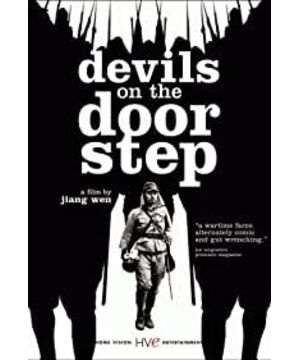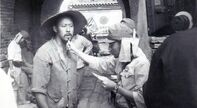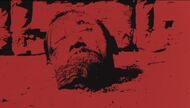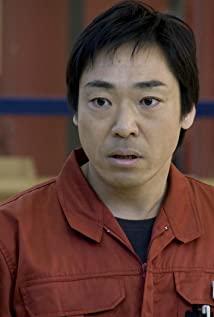Jiang Wen always likes to deal with political topics in the form of jokes, of course, this is inseparable from the existence of the State Administration of Radio, Film and Television. In addition to political topics, the arrival of the devil can be regarded as a faithful restoration of some of the human nature of some northern farmers of that era, which is commendable and even unique.
There are no perfect heroes, nor are there complete villains
and peasants who are conservative. The greatest wish of that era was nothing more than living a peaceful life with one-third of an acre. Uprising and carrying a gun was the only choice for them when they couldn’t survive, and doctrine was just for them. A solace that can be delivered to the fragile mind.
The peasants were timid and afraid to keep their eyes open. They fed the captives delicious food and took care of the captives whose life and death were in their hands for half a year.
The peasants are good-hearted and abide by the principles of ethics, and the feudal concept of thousands of years is deeply rooted. I hate the Japanese so much, but I still can't get over the fear of murder in my heart, worrying that the murderer is dirty and will be punished, etc. Breaking the old and building the new requires a heavy price.
The peasants do not understand themselves, nor do they understand their enemies. People are often prone to fall into the traps they set for themselves, with all kinds of interests behind them, fear of troubles, and luck. Of course, this has never been the patent of farmers. No one can kill people. The last solution the peasants thought of was to send the devil back. After thinking about it, he began to collect excuses, hoping that he could gain benefits, that the devil would be grateful, and even hope that some There is no contract constraint, or there is a problem with the logical order here, thinking that the devil can send it back in exchange for benefits - a few cartons of food, the change begins to be tempted. This thought will open the door of the devil for a lifetime.
The reason the farmers finally gave to themselves was that the people were not robbed by us, it had nothing to do with us, we treated them very well, and it just so happened that the devils in the village were not bad to them in the past = not particularly cruel, they should be grateful, of course it would be better if they could exchange rice, And they all signed it. . . In fact, they have seriously discussed and thought about all the problems they can think of. Of course, they don't fully understand the cowardice behind them, let alone those devils, those complicated so-called honors, and the wolf teeth behind them. They get through all the logic, they are happy, they look forward to it, they think the worst is not going to be bad, but they encounter consequences that they can't even dream of.
The irony of Tu Cun
is that the Japanese army has already surrendered, and they will stay for two more weeks, taking care of the devils for two weeks, or they can wait until one of them is happy. Finally, it was because of a little bit of greed that everyone lost their lives.
The representative of the national army who finally took over was a Chinese officer with an American accent, and the guards behind him were all Americans. It was he who justly and sternly sentenced the third brother to death. The third brother is played by Jiang Wen himself. Except for the last simple and persistent disabled old man - the fighting spirit of Jiajia Village, the third brother is the most man in the village, and some of Jiang Wen's personal heroic colors are also reflected in him. The Japanese think that the lives of Chinese people are worthless, especially the lives of Chinese farmers, and the same is true of senior officials of the national army. The national army officials sternly sent the most seriously injured person to the guillotine, and handed it over to the Japanese prisoners of the defeated side for execution, without a trace of pity and compassion, only dismissive.
The leg of the national army officer in plaster, the Japanese prisoner who almost cut his belly, the Japanese who gave candy to the child, human nature is inherently complicated, between black and white, there is always no lack of gray.
View more about Devils on the Doorstep reviews










